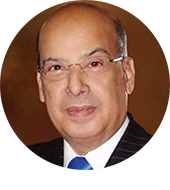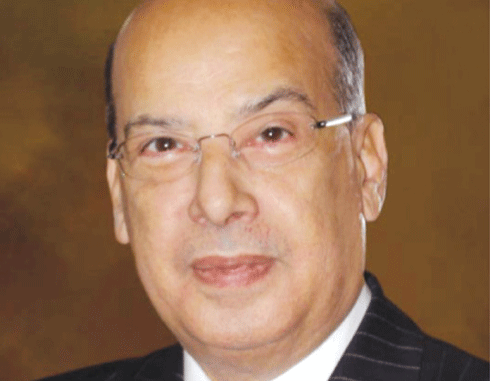
(The writer is Antigua and Barbuda’s Ambassador to the United States and the OAS. He is also a Senior Fellow at the Institute of Commonwealth Studies at the University of London and at Massey College in the University of Toronto. The views expressed are his own)
STARTLINGLY, 8 of the 10 Commonwealth countries that still cling to the Judicial Committee (JC) of the Privy Council as their final court of appeal are Caribbean Community (CARICOM) states.
Forty-three of the 52 remaining Commonwealth countries (not counting Britain) have long since left this hang-over from British colonialism. These countries include Canada, Australia, New Zealand, South Africa and India.
Rightly, most Commonwealth countries, who were tied to the JC of the Privy Council when they were colonies or dominions of Britain, see no good reason why their final appellate court should continue to be distant British persons, appointed by the British Prime Minister, whose legal knowledge and expertise, while good, are no better than judges of their own countries or regions.
Retentionists in the 8 CARICOM countries, who argue for the retention of the JC of the Privy Council as their final appellate court, irrationally equate the performance of local courts in their jurisdictions to the Caribbean Court of Justice (CCJ).
They argue two things: the judges of the local courts are subject to direction of the governments that appoint them, and the judges are subject to influence from within their communities. Therefore, they say, the CCJ will be the same.
There is no sound basis for such an equation. For, unlike the local courts, the justices of the CCJ are neither appointed nor paid by the governments of Caribbean countries. The CCJ is funded through a Trust Fund, which is independently managed. Justices of the CCJ do not get salary cheques from any government. Further, governments have no say in the appointment of the judges. A regional judicial and legal services commission chooses them. The Commission comprises persons nominated jointly by the Commonwealth Bar Association and the Eastern Caribbean Bar Association; persons from civil society following consultation with regional non-governmental organizations; two distinguished jurists nominated by law school deans; and two persons nominated jointly by the bar associations of CARICOM countries.
The retentionists also fail to recognize that the JC of the Privy Council has neglected the task of improving the performance of local courts which is a vital part of the role of a final court.
The JC of the Privy Council has made little or no effort to educate or train judges and officers of local courts or to improve their judgements by oversight and advice.
But an extremely important role of the final court lies in interacting and interfacing with judges of the lower courts and with improving the processes involved in the administration of justice.
The JC of the Privy Council is unable to fill that role not only because of its distance, but because it has no financial means to do so. It would have to ask an already financially strained British government to provide money for such education and training on a continuous basis. There is no earthly reason why British taxpayers would have any interest in seeing their money so diverted from their own needs.
Staying with the JC of the Privy Council, therefore, consigns the 8 CARICOM countries to a judicial construct that is woefully inadequate. For, if local courts are underperforming in the delivery of justice, they will not improve, nor will they sharpen their act, unless they are overseen by a higher court.
In Britain, the United States and elsewhere, judges of final courts are invariably involved in the judicial training academies of their respective countries. The JC of the Privy Council cannot perform this role for the Caribbean. But, the CCJ routinely performs it through its Academy of Law and the Caribbean Association of Judicial Officers.
Both of these bodies play a huge role in training judges in the jurisdictions for which the CCJ is the final court and, thereby, enhance the efficiency and effectiveness of the administration of justice in the lower courts.
In Guyana, for example, over the last 10 years, the CCJ has led the way in introducing new civil procedural rules; in training judges, lawyers and court staff in the new rules; and in creating a modern landscape for the improved administration of justice.
By contrast the JC of the Privy Council plays no role whatsoever in improving justice delivery in any of the 8 CARICOM countries that hold on to its coat tails.
Significantly, the justices of the Privy Council in Britain are themselves very aware of the inadequacy that distance and unfamiliarity with the Caribbean place upon them. Lord Hoffman made telling statements about this on his first visit to Trinidad even though he had been a judge of the JC of the Privy Council for nine years.
He admitted that: “Members of the PC are being handicapped because they are not from this community”. And, he added: “The liberty of a final court of appeal to fashion as a third branch of Government depends not only on its legitimacy but upon the sensitivity of its members to what is necessary and what is possible.” He suggested that such a final court must be aware of the society — have the necessary knowledge, legitimacy and sensitivity to the politics.
Since 2005, the CCJ has proved Lord Hoffman right. It has been manned by leading Caribbean judges of high international repute. Their judgements have been praised and cited by the highest courts of other lands. What is more the CCJ has given Caribbean people of lesser means unprecedented access to appeals.
The quality of a final court cannot be determined by its distance from a jurisdiction, nor can it be judged by the colour of its judges’ skin. What determines the quality of a court is its independence, its accessibility, the high standards of its judgements, and its capacity to help local courts deliver justice, fairly and rightly.
The CCJ has demonstrated its high quality; it is that high quality by which it should be judged.
Responses and previous commentaries: www.sirronaldsanders.com
Sir Ronald Sanders
www.sirronaldsanders.com
A repository of the commentaries, interviews, and lectures of Sir Ronald Sanders













